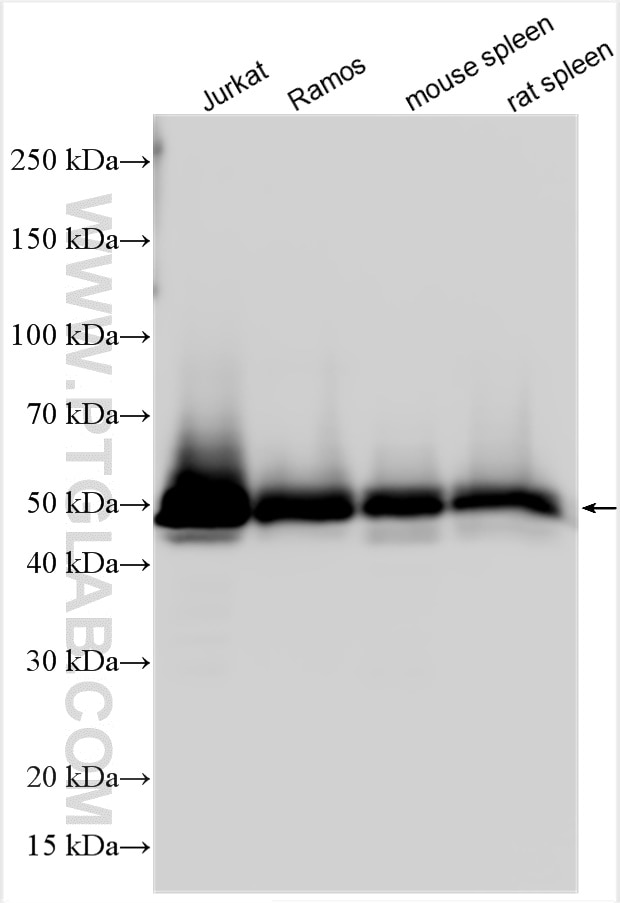Anticorps Polyclonal de lapin anti-LCK
LCK Polyclonal Antibody for WB, ELISA
Hôte / Isotype
Lapin / IgG
Réactivité testée
Humain, rat, souris
Applications
WB, ELISA
Conjugaison
Non conjugué
N° de cat : 32464-1-AP
Synonymes
Galerie de données de validation
Applications testées
| Résultats positifs en WB | cellules Jurkat, cellules Ramos, tissu splénique de rat, tissu splénique de souris |
Dilution recommandée
| Application | Dilution |
|---|---|
| Western Blot (WB) | WB : 1:2000-1:16000 |
| It is recommended that this reagent should be titrated in each testing system to obtain optimal results. | |
| Sample-dependent, check data in validation data gallery | |
Informations sur le produit
32464-1-AP cible LCK dans les applications de WB, ELISA et montre une réactivité avec des échantillons Humain, rat, souris
| Réactivité | Humain, rat, souris |
| Hôte / Isotype | Lapin / IgG |
| Clonalité | Polyclonal |
| Type | Anticorps |
| Immunogène | LCK Protéine recombinante Ag38061 |
| Nom complet | lymphocyte-specific protein tyrosine kinase |
| Masse moléculaire calculée | 539 aa, 56 kDa |
| Poids moléculaire observé | 50 kDa |
| Numéro d’acquisition GenBank | BC013200 |
| Symbole du gène | LCK |
| Identification du gène (NCBI) | 3932 |
| Conjugaison | Non conjugué |
| Forme | Liquide |
| Méthode de purification | Purification par affinité contre l'antigène |
| Tampon de stockage | PBS with 0.02% sodium azide and 50% glycerol |
| Conditions de stockage | Stocker à -20°C. Stable pendant un an après l'expédition. L'aliquotage n'est pas nécessaire pour le stockage à -20oC Les 20ul contiennent 0,1% de BSA. |
Informations générales
kinase of the SRConcogene family that is involved in transduction of T-cell receptor-mediated activation.It is implicated in the control of lymphocyte growth by virtue of its overexpression in some lymphoid malignancies and its transforming activity in heterologous systems(PMID:2784463).It has 3 isoforms produced by alternative splicing.
Protocole
| Product Specific Protocols | |
|---|---|
| WB protocol for LCK antibody 32464-1-AP | Download protocol |
| Standard Protocols | |
|---|---|
| Click here to view our Standard Protocols |


